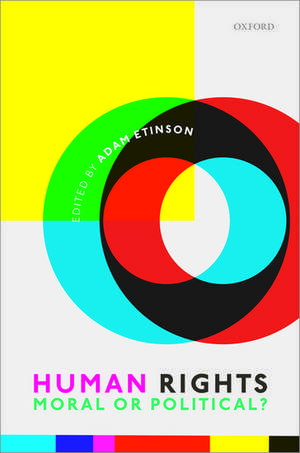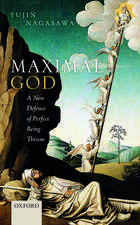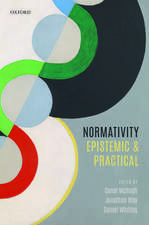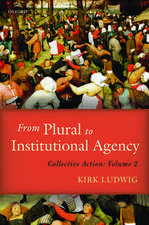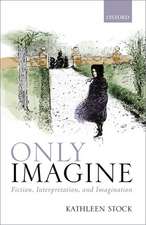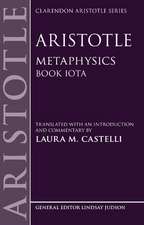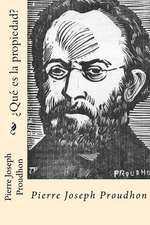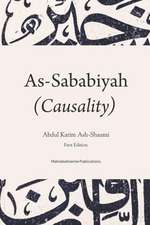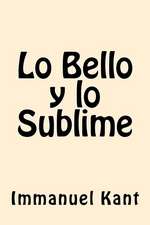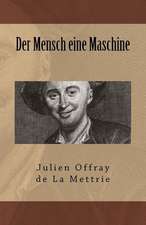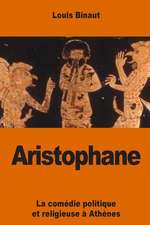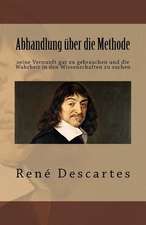Human Rights: Moral or Political?
Editat de Adam Etinsonen Limba Engleză Hardback – 15 mar 2018
| Toate formatele și edițiile | Preț | Express |
|---|---|---|
| Paperback (1) | 307.72 lei 10-16 zile | |
| OUP OXFORD – 9 apr 2020 | 307.72 lei 10-16 zile | |
| Hardback (1) | 693.70 lei 31-37 zile | |
| OUP OXFORD – 15 mar 2018 | 693.70 lei 31-37 zile |
Preț: 693.70 lei
Preț vechi: 786.72 lei
-12% Nou
Puncte Express: 1041
Preț estimativ în valută:
132.74€ • 138.94$ • 110.48£
132.74€ • 138.94$ • 110.48£
Carte tipărită la comandă
Livrare economică 20-26 martie
Preluare comenzi: 021 569.72.76
Specificații
ISBN-13: 9780198713258
ISBN-10: 0198713258
Pagini: 520
Dimensiuni: 164 x 241 x 35 mm
Greutate: 0.94 kg
Editura: OUP OXFORD
Colecția OUP Oxford
Locul publicării:Oxford, United Kingdom
ISBN-10: 0198713258
Pagini: 520
Dimensiuni: 164 x 241 x 35 mm
Greutate: 0.94 kg
Editura: OUP OXFORD
Colecția OUP Oxford
Locul publicării:Oxford, United Kingdom
Recenzii
A rich collection of focussed dialogues — a provocative gift for teaching — in which the lively ferment over human rights in recent years is deepened, often by becoming refreshingly interdisciplinary, and exciting new formulations are proposed by a diverse range of leading scholars.
The Universal Declaration of Human Rights may be the single most influential document of the twentieth century, but is also one of the most controversial. In Human Rights: Moral or Political? Adam Etinson has brought together more than 30 leading legal, political, historical and philosophical commentators on human rights to discuss one anothers claims. The authors range from those who see human rights as successors to natural rights, so as providing universal moral standards, to those who see human rights as positive legal and political instruments that are changing the international order... this collection is seriously and usefully critical not only on these fundamental issues, but also on knotty questions about specific rights, about principles of legal interpretation and about the limits of juridification.
This is an impressive collection of essays by outstanding human rights scholars from a variety of disciplines. It is certain to make a lasting impact on contemporary thinking about human rights. Taking off from the current debate on the proper status of human rights as "orthodox" or "political," the essays in this volume not only move this important debate forward but also enable a genuine dialogue across disciplines on fundamental philosophical, political and legal questions surrounding human rights and human rights practice. The collection thus excellently represents the depth and scope of engagement across disciplinary boundaries that understanding human rights in all their complexity requires. It will be mandatory reading for anyone interested in the past, present and future of human rights.
Those of us whose work is focused on 'applied' human rights in law, politics, or ethics may nevertheless experience a need for fundamental reflection on the 'big' philosophical questions regarding human rights. Such craving can now be satisfied with a single book. With no less than 30 chapters and an unseen concentration of stars of the philosophical and other firmaments, it can also be read as a sample book, introducing readers to different ways of philosophical rights reasoning. The majority of the chapters engage in discussions at a very abstract or general level. While this may be off-putting to the practical-minded, it also guarantees relevance across the entire field of human rights scholarship, regardless of disciplines, jurisdictions and thematic specialisations.
The Universal Declaration of Human Rights may be the single most influential document of the twentieth century, but is also one of the most controversial. In Human Rights: Moral or Political? Adam Etinson has brought together more than 30 leading legal, political, historical and philosophical commentators on human rights to discuss one anothers claims. The authors range from those who see human rights as successors to natural rights, so as providing universal moral standards, to those who see human rights as positive legal and political instruments that are changing the international order... this collection is seriously and usefully critical not only on these fundamental issues, but also on knotty questions about specific rights, about principles of legal interpretation and about the limits of juridification.
This is an impressive collection of essays by outstanding human rights scholars from a variety of disciplines. It is certain to make a lasting impact on contemporary thinking about human rights. Taking off from the current debate on the proper status of human rights as "orthodox" or "political," the essays in this volume not only move this important debate forward but also enable a genuine dialogue across disciplines on fundamental philosophical, political and legal questions surrounding human rights and human rights practice. The collection thus excellently represents the depth and scope of engagement across disciplinary boundaries that understanding human rights in all their complexity requires. It will be mandatory reading for anyone interested in the past, present and future of human rights.
Those of us whose work is focused on 'applied' human rights in law, politics, or ethics may nevertheless experience a need for fundamental reflection on the 'big' philosophical questions regarding human rights. Such craving can now be satisfied with a single book. With no less than 30 chapters and an unseen concentration of stars of the philosophical and other firmaments, it can also be read as a sample book, introducing readers to different ways of philosophical rights reasoning. The majority of the chapters engage in discussions at a very abstract or general level. While this may be off-putting to the practical-minded, it also guarantees relevance across the entire field of human rights scholarship, regardless of disciplines, jurisdictions and thematic specialisations.
Notă biografică
Adam Etinson is a Senior Lecturer in Philosophy at the University of St Andrews, where he is also Assistant Director of the Centre for Ethics, Philosophy, and Public Affairs (CEPPA). His articles have appeared in a wide range of academic journals, including The Australasian Journal of Philosophy, Utilitas, The Journal of Moral Philosophy, Political Theory, and Human Rights Quarterly. He has also written for popular audiences in The New York Times, The Times Literary Supplement, and Dissent.
